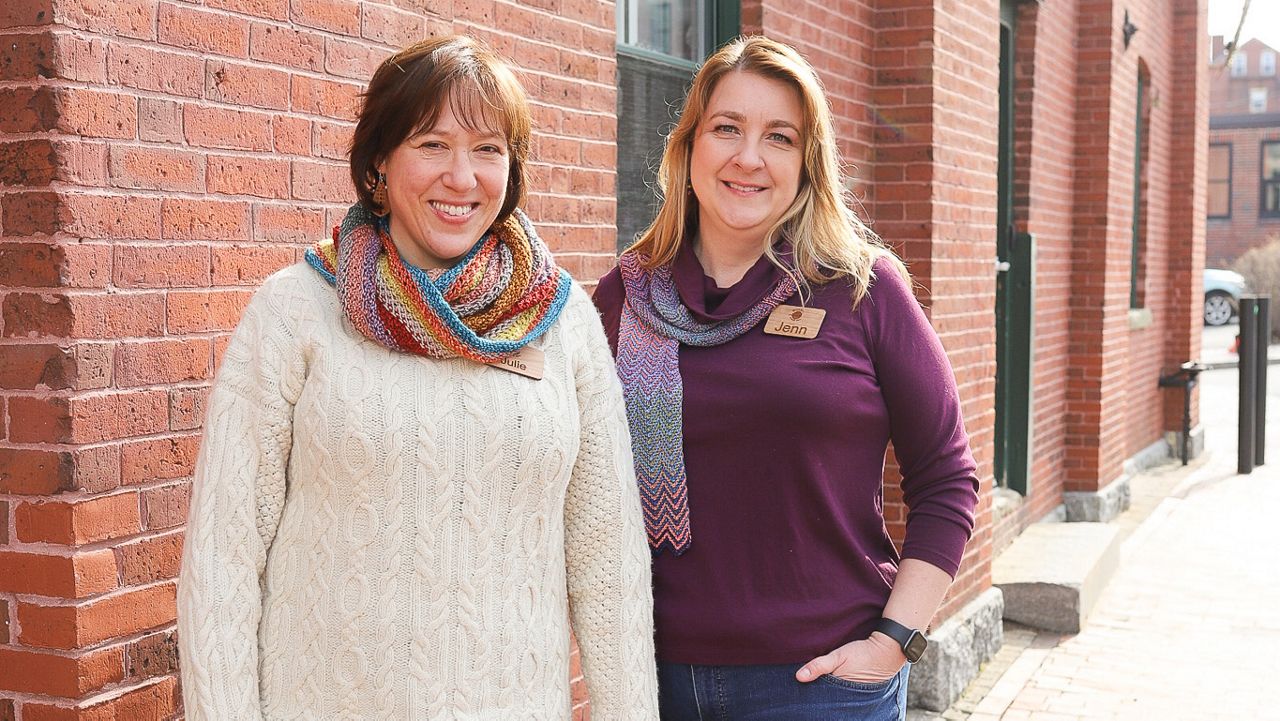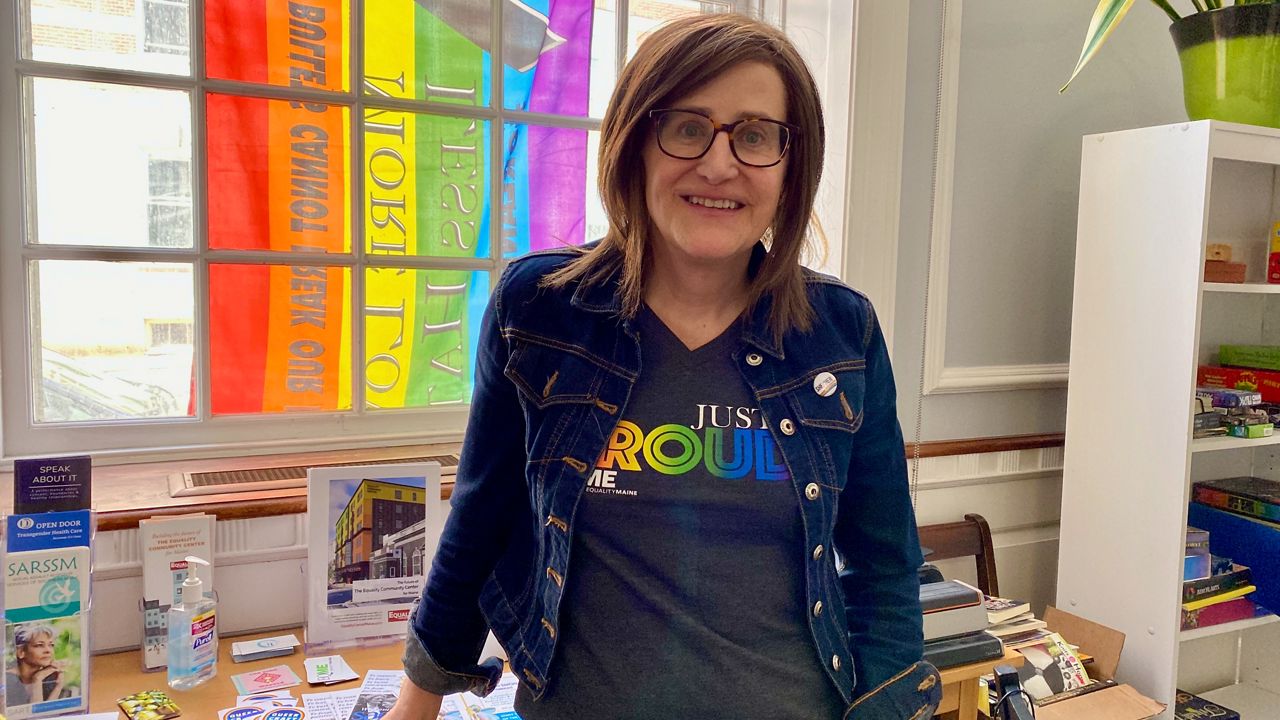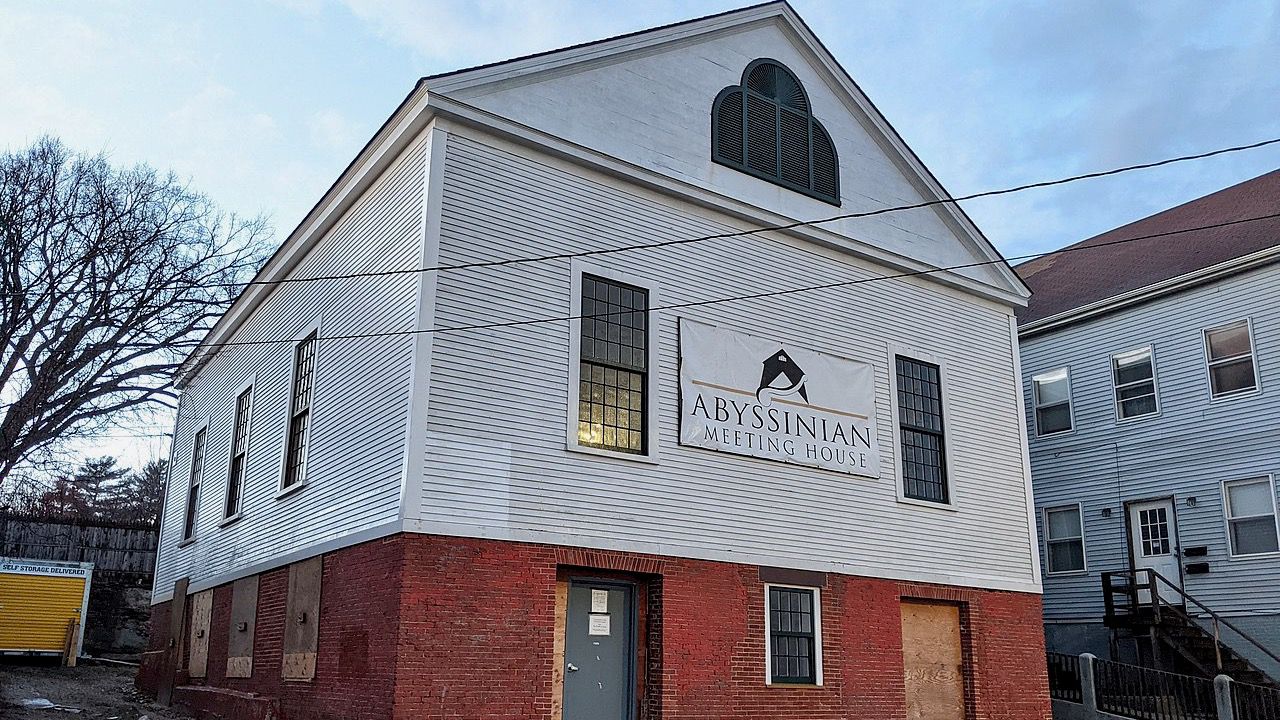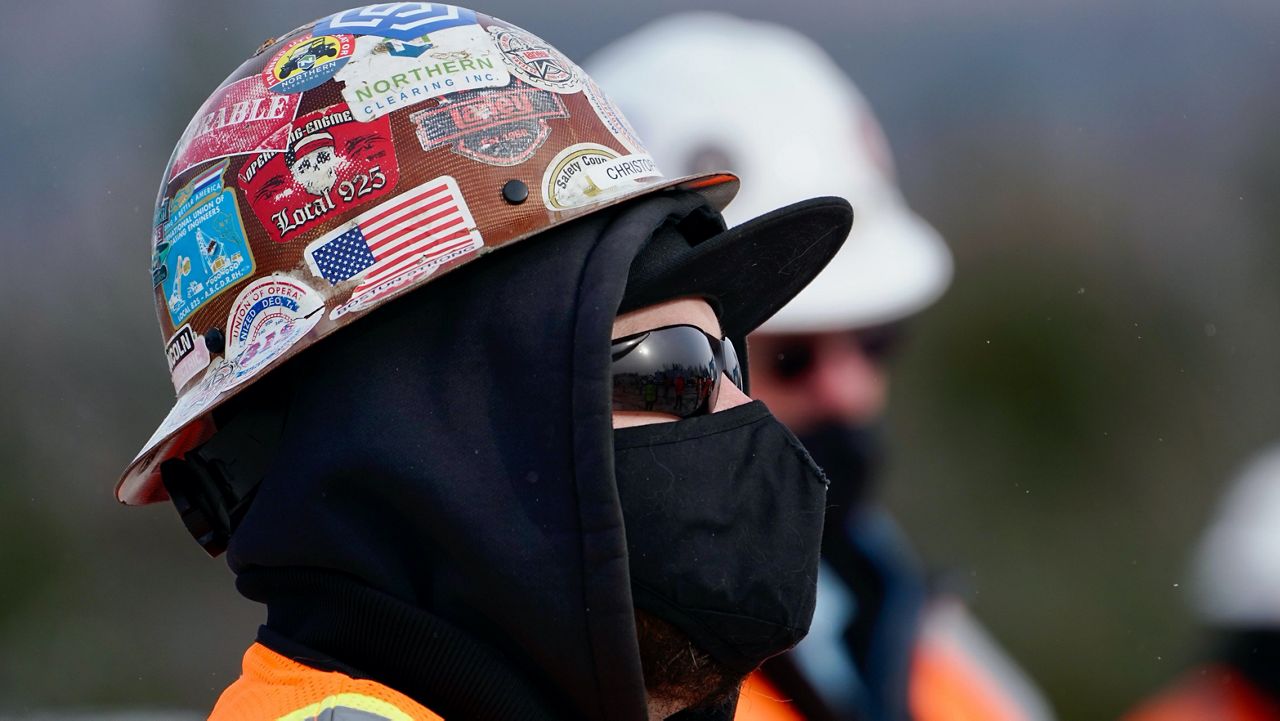Plenty of Mainers have stories to tell, either as a hobby, or as a new, cutting-edge livelihood. In this occasional series, Spectrum News Maine profiles local hosts who are expressing themselves through podcasting.
The best way to motivate Marsha Hinton is to tell her that she can’t accomplish something.
It was that type of conversation with a friend who’s a writer that inspired Hinton, 65, to create “Restless Shores,” Maine’s first podcast-based soap opera.
“We’ll have multiple actors in at a time,” Hinton said while showing off the podcast studio she built on one side of her living room in West Bath. The setup includes soundproofing material on the walls and four small booths for local actors to speak their lines into microphones while reading off scripts on a stand in front of them.
An Indiana native, Hinton’s fiction-writing career dates back to 2006. At the time, Hinton said, she was working at the L.L. Bean factory in Brunswick, sewing boots. She and her husband, Thom, 68, also from Indiana, had spent 23 years crisscrossing the country following Thom’s job as an aircraft mechanic and flight engineer for the US Navy. The couple settled in Maine after Thom finished his last posting, in 1997, at Brunswick Naval Air Station.
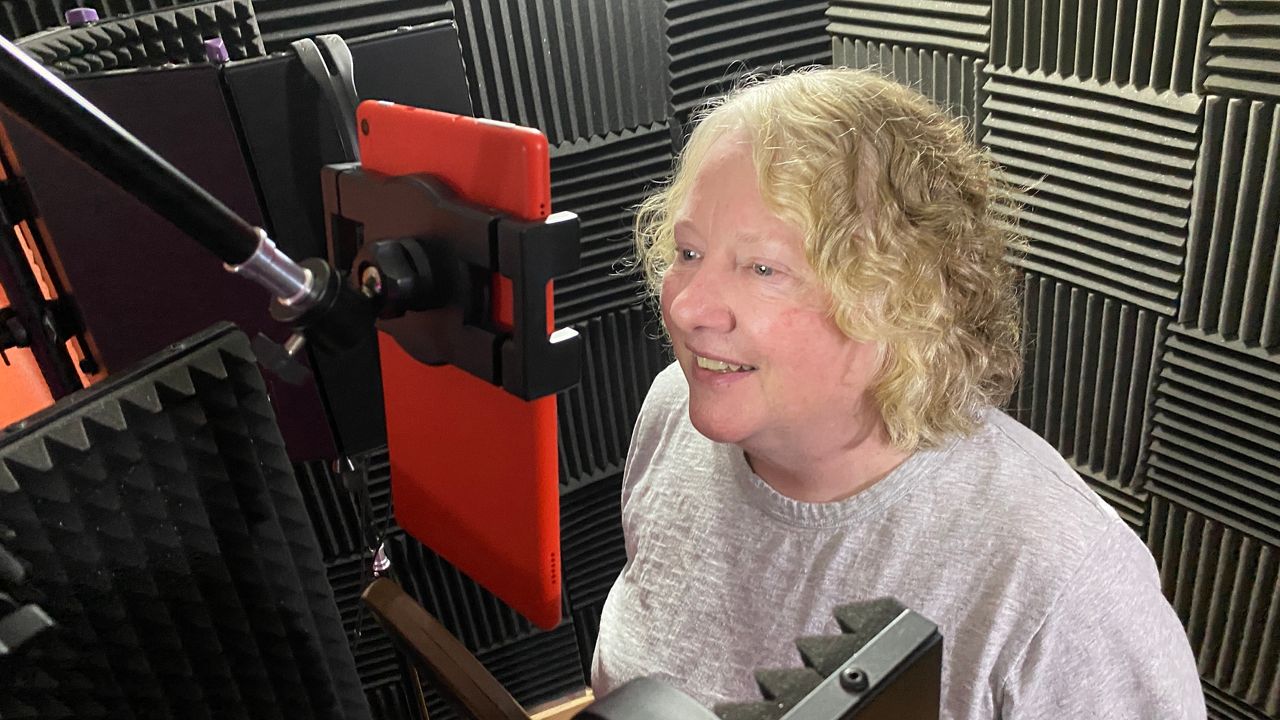
Marsha Hinton said writing has always come easily to her. She worked in a lot of offices over the years as a secretary, file clerk and even a paralegal. In 2006, she was talking with a friend who was lamenting about how hard it was to get published.
“I’m listening to him, going, ‘OK, how hard could this be?’” she said.
The friend, whom Hinton would not name, told her matter-of-factly that she would never be able to write well enough to get published.
Undaunted by the criticism, Hinton wound up writing three manuscripts and got all three published: “Rylee Rising,” a romance novel, a murder mystery named “Souvenirs” and a tongue-in-cheek novel called “Zombie Moose of West Bath, Maine.”
That same creative spirit drove her to create “Restless Shores.” A longtime fan of TV soaps like “Dark Shadows” and “General Hospital,” Hinton said she set out to find some way to create her own serialized program. Of all the options, she said, producing an audio drama seemed to be the most cost-effective way to pull it off.
“(The actors) don’t have to memorize their lines. They don’t have to hit their marks. There’s no costumes, there’s no props. It’s just them and the mics,” she said.
Now running as a production company under the name New Meadows Media, the Hintons employ 29 actors and five writers. Thom serves as engineer and director. Some of the actors, Marsha Hinton said, are community theater veterans, but one was a professional wrestler. Another, she said, is a violinist with the Maine State Orchestra. Yet another, she said, is a choir director at Bowdoin College.
“He played our Russian mobster,” she said.
Each episode is around 10 minutes and consists of a series of scenes stitched together with an electronic theme song. Hinton admits the stories are “campy,” with fictitious creations such as a Chinese food restaurant named the Endangered Salamander (“Best Kung Pao chicken around!”) popping up as recurring tongue-in-cheek gags.
“You know Hemingway? Socrates? I’m not them,” she said.
Regardless of what a literary critic might think, there’s no denying the show’s popularity. Now in its fourth season, Hinton and her husband have produced 160 episodes that have been downloaded more than 88,000 times. The downloads, Hinton said, come from more than 110 countries, including Iran, North Korea, China and Russia.
When asked about the secret to the podcast’s success, Hinton said she thinks the show hearkens back to the days of old radio, when the storytelling experience demanded the audience use their imaginations more.
“There’s a lot of entertainment value in letting the listener picture in their mind what’s going on, and audio drama lets you do that,” she said.
Hinton also said the stories feature very little bad language, violence or sex. The latter, she said, is missing for practical reasons as much as anything.
“You can’t have sex on audio. What are you going to do? Bed-squeaking and grunting? That’s not going to work,” she said.
Hinton nearly ended the podcast when the pandemic struck. Until then, Hinton said, she was funding the podcast, including paying the actors herself. But when the coronavirus came to Maine, she quit her job at L.L. Bean out of fear that she would bring COVID-19 home to her mother, who still lives with the couple.
Without a job, Hinton told the actors that she would have to cancel the podcast.
“Every one of them agreed to work for free. It warmed my heart and broke my heart at the same time,” she said.
The Hintons believe the actors won’t be working for free much longer. The couple just signed a revenue-sharing agreement with a national distributor. Hinton said she believes the podcast will now generate income for herself and the cast and crew.
“I don’t think anybody’s going to get rich, but I think I’ll be able to pay my guys and maybe pay myself,” she said.
Hinton said the show’s fans motivate her to keep going, too. She still remembers her first fan experience, hearing from a listener in Canada about six weeks into the podcast’s first season.
“They were in love with the show,” she said.
Hinton is well aware of the hardcore following that many soap operas have, and she aspires to create the same community for “Restless Shores.”
“They’re the people that build my base,” she said.






